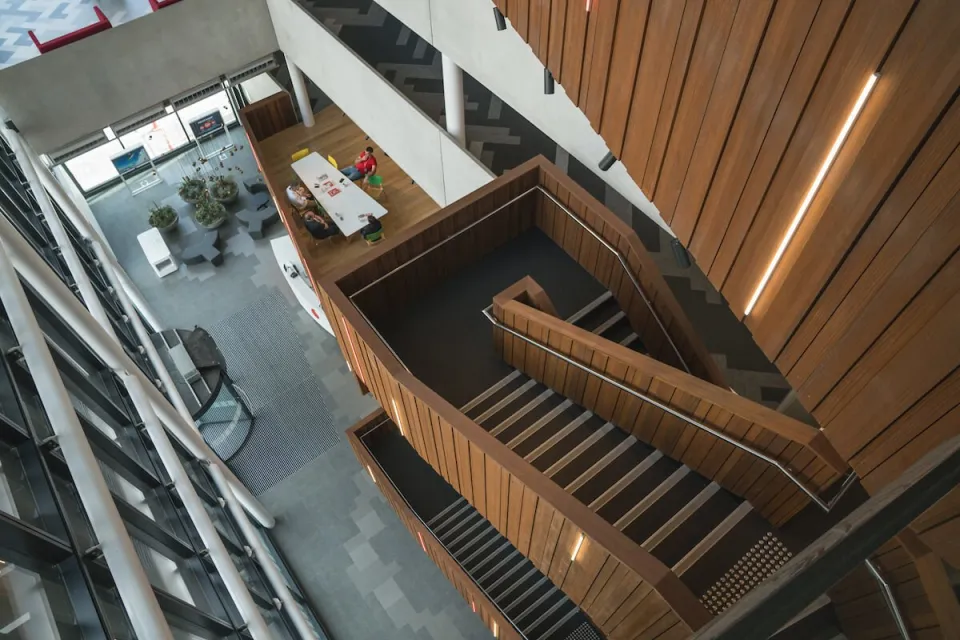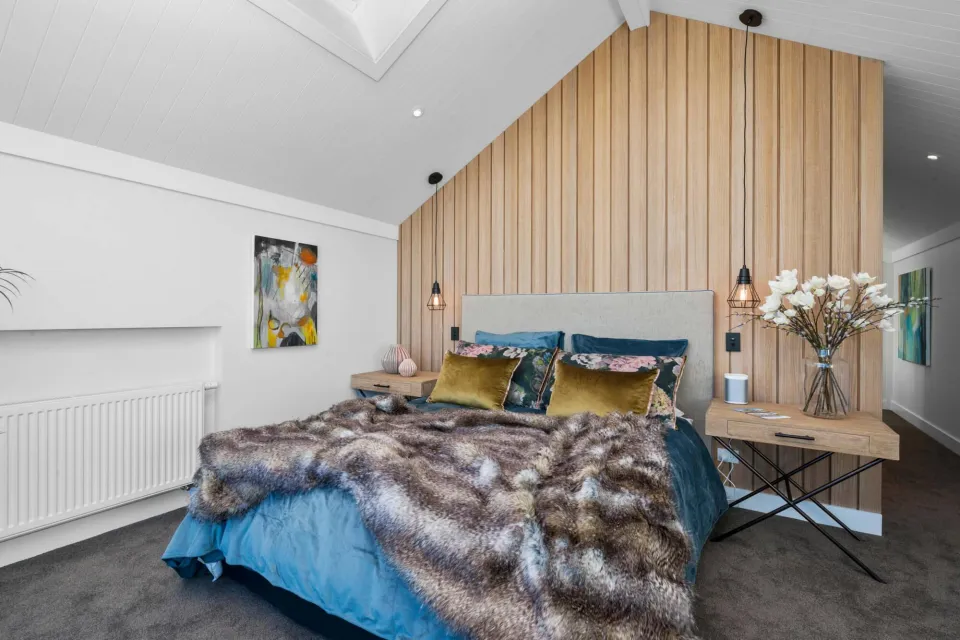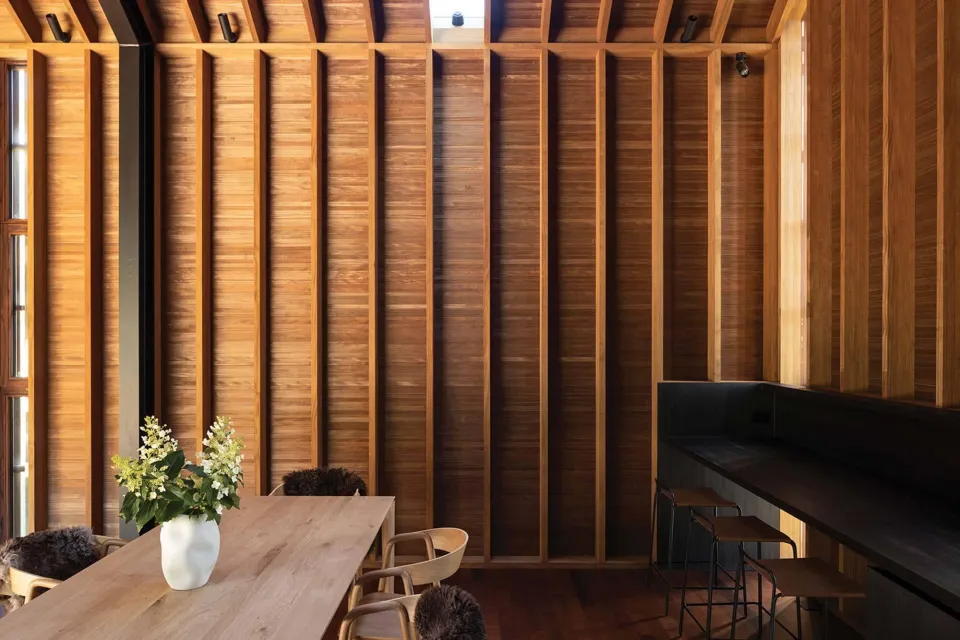-
About
-
Products
- By Timber Product
- Cladding
- Decking
- Screening
- Panelling
- View all
- By Application
- Exterior Cladding / Siding
- Exterior Rain Screen
- Interior Walls & Ceilings
- Soffits
- Screening, Fins & Battens
- Windows, Doors & Joinery
- Posts & Beams
- Accessories
- Coatings
- Fixings
-
Resources
- By Resource Type
- Technical Data Sheets
- Guides & Manuals
- Technical Articles
- Profile Drawings
- View all
- How To
- How to Specify
- How to Install
- How to Maintain
- Projects
- Contact
Choosing Wood for Wellness
This past year has brought wellness and the importance of a healthy home into the spotlight - and wood has come out on top.
Forest bathing - or shinrin-yoku - is the Japanese practice of bathing your senses in the greenery, fresh air and natural sounds and experiences of a forest. The aim is not to get to a destination or bring your step count up, but to simply be in the forest, unplugged, and take it in.
Studies by Japanese doctor and researcher Qing Li found that spending time in a forest can have a whole host of amazing effects on the mind and body, reducing stress, anxiety, depression and anger; strengthening the immune system; improving cardiovascular and metabolic health; and helping with sleep.
Idyllic as it may sound, practising shinrin-yoku on a regular basis might not be possible for everyone. According to the Environmental Protection Agency, the average American spends about 90% of their life indoors - and that is from a study taken pre-pandemic.
These days, our homes are even more important for our wellbeing. What they are made from and lined with can have a huge impact on our mental and physical health.
For the times when we can’t get away to a forest, having a house filled with natural materials, especially wood, is the next best thing.
A recent paper based on data gathered by a research team from the Chair of Timber Structures and Building Construction at the Technical University of Munich proves the far-reaching benefits for humans of using wood in construction.
Wood makes you a better, more focussed and creative worker
The study found that having wood grain as an interior texture boosts creativity and helps people to stay focussed on their tasks for longer.
Surveys and studies of workers placed in timber-lined buildings showed that they were calmer, more adept at problem solving, less likely to be distracted, and were able to be more productive than their counterparts in more artificial surroundings.
Wood makes you happier
When asked to describe a wooden interior, most people will use the wood ‘warm’. The smell, touch and feel of wood and its associations are positive for most people. This natural reaction to the use of timber is one that research proves helps to reduce stress and boost mood.
One study placed students in rooms with varying degrees of wood and plants. The rooms that had the most wood - even if plants were absent - were the ones where students had the lowest stress levels.
Wood makes you healthier
According to the research, those living in timber buildings had lower blood pressure and heart rates than those in buildings that used other materials. It has also been shown that wooden surfaces are less adept at holding on to viruses. In these studies, Coronavirus was applied to wooden, plastic, glass, masonry and stainless steel surfaces. On the timber surface, it could be replicated for 12 hours, while on the other surfaces it lasted up to 96 hours.
Your immune system can also be boosted by timber. A Japanese study applied essential oils from the Hinoki Cypress tree to test subjects and found their rates of Natural Killer (NK) cells - a sign of a strengthened immune system - were higher than those who were not given the oils.
Wood makes your environment healthier
Timber-lined interiors are proven to provide better air quality and more stable levels of humidity than other materials. Wood-based materials can reduce the amount of Volatile Organic Compounds (VOC) in interior environments, which can be bad for your health.
The ideal humidity range for indoor spaces is between 40-70%. Humidity levels within this range will help to reduce health problems such as asthma and respiratory infections. Wood linings provide better protection from moisture than gypsum or plaster linings, resulting in rooms that stay at an ideal humidity.



